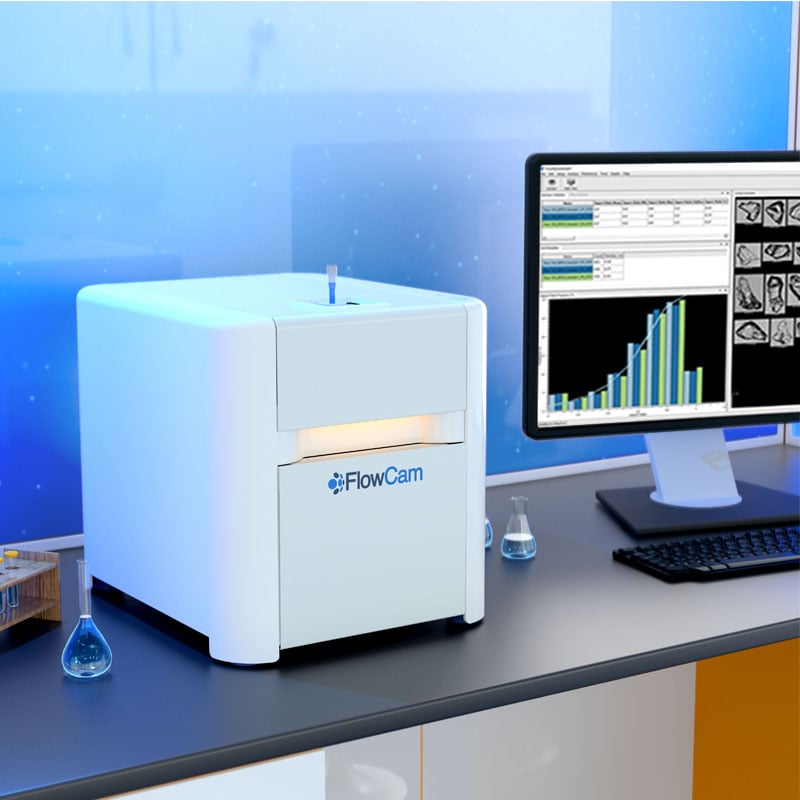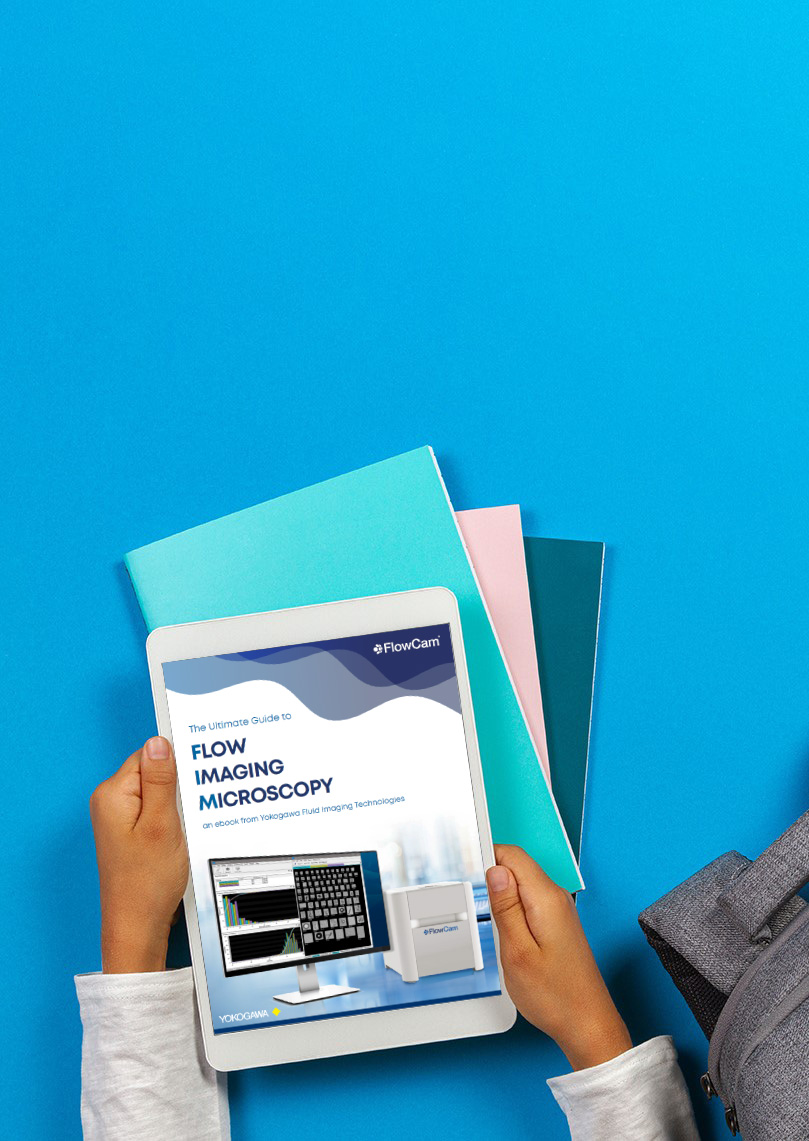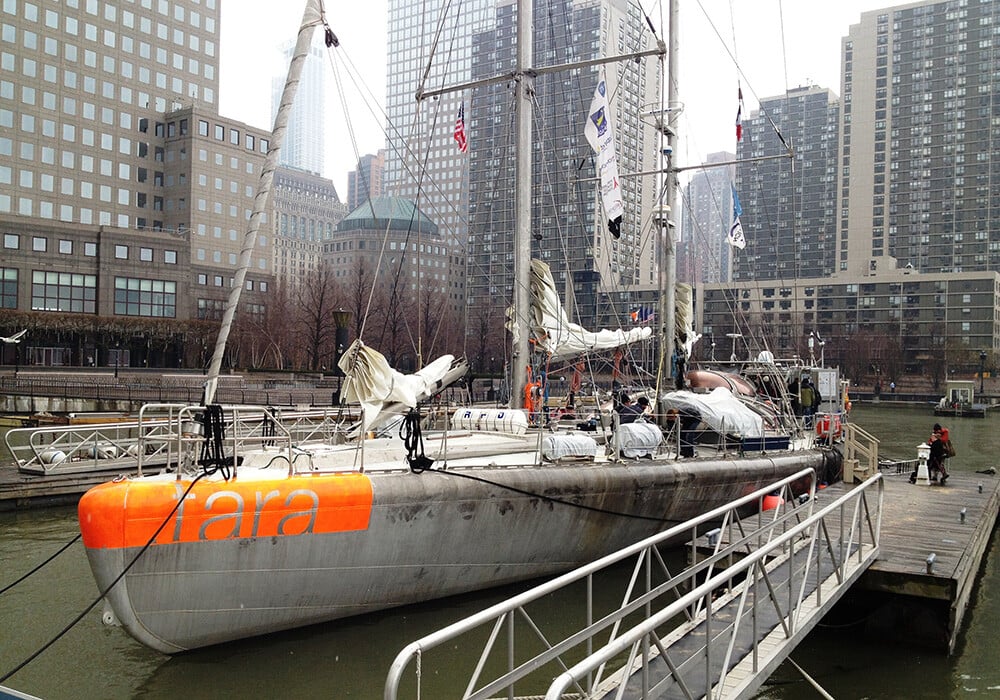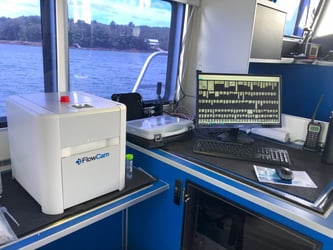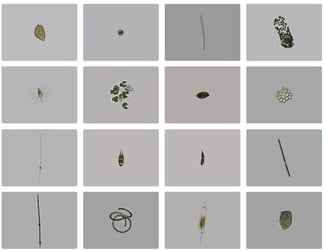The Tara Ocean Foundation, based in France, has mounted a collective effort to study the effect of climate change on the world's oceans. Beginning in 2004, they have launched 11 expeditions that have spanned the globe. According to the Tara Oceans Foundation, the project "has developed an open, innovative Ocean science that will enable us to predict, anticipate and better manage tomorrow’s climate risks. We use high-level scientific expertise to raise awareness and educate young people, mobilize policy makers at the highest level, and enable emerging and developing countries to access the latest knowledge about the Ocean."
The Tara Ocean Foundation owns 3 FlowCam instruments, one of which lives onboard Tara, their 36-meter sailing vessel, and has been used to analyze microplankton on their expeditions since 2012.
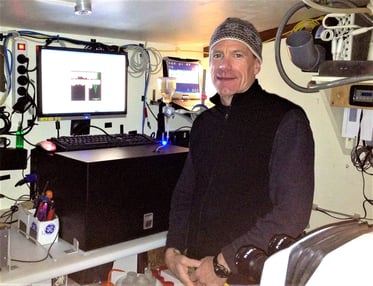
|
| Yokogawa Fluid Imaging's Vice President of Aquatic Markets, Harry Nelson, with FlowCam on board Tara in 2012 |
They recently published a paper in Nature Reviews Microbiology titled "Tara Oceans: towards global ocean ecosystems biology". The paper takes a broad view of the project and reviews how "an ecosystems biology approach has expanded our understanding of plankton diversity and ecology in the ocean as a planetary, interconnected ecosystem. These efforts illustrate how global-scale concepts and data can help to integrate biological complexity into models and serve as a baseline for assessing ecosystem changes and the future habitability of our planet in the Anthropocene epoch."
The paper concludes that the ability to study and record information about the ocean's smallest residents is
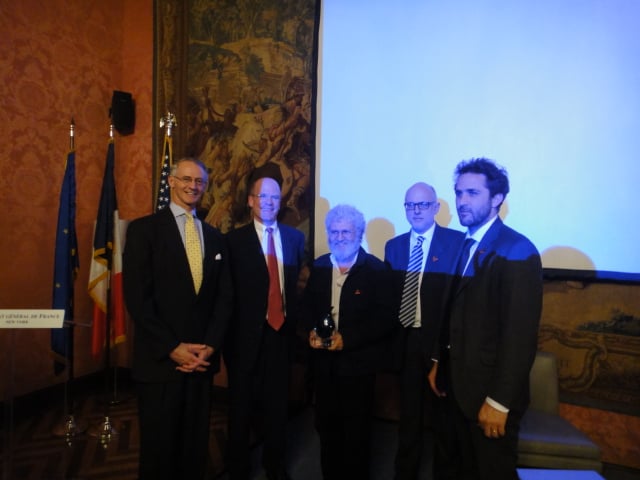 |
| Tara Reception at French Consulate in New York in 2012. From Left: Kent Peterson, Yokogawa Fluid Imaging CEO, Harry Nelson, Dr. Eric Karsenti, Étienne Bourgois, Romain Troublé |
important to a holistic understanding of the ocean's ecosystem. New technologies, including the FlowCam, support the project's ability to understand each piece of this system, and engender a broader understanding of the present and future state of our oceans. They call for continued sampling, with broader coverage across geographies and depths, and for other disciplines and non-traditional funding sources to support their efforts to predict the effects of climate change.
REFERENCES
S. Sunagawa, S.G. Acinas, P. Bork, C. Bowler, Tara Oceans Coordinators, D. Eveillard, G. Gorsky, L. Guidi, D. Iudicone, E. Karsenti, F. Lombard, H. Ogata, S. Pesant, M.B. Sullivan, P. Wincker, C. de Vargas "Tara Oceans: towards global ocean ecosystems biology" Nature Reviews Microbiology, May 12, 2020



